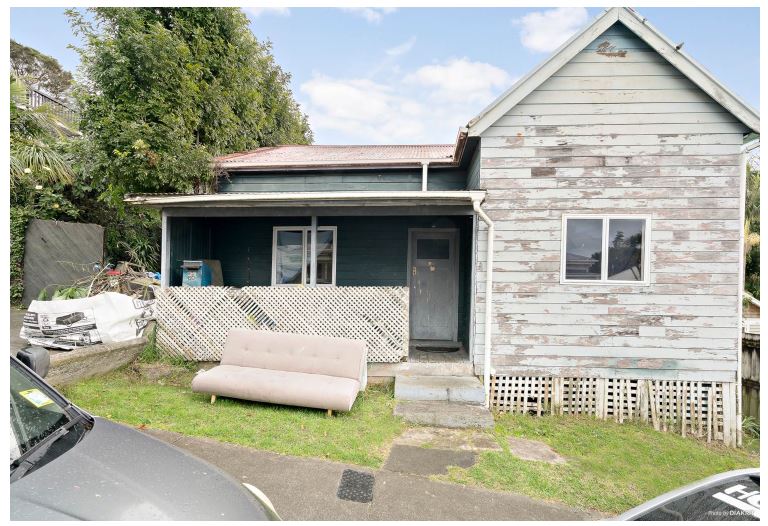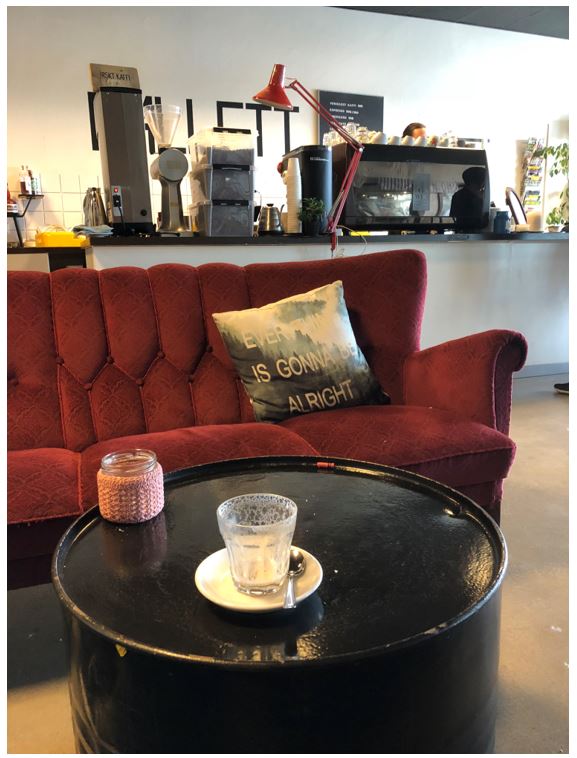What’s the absolute very most you would pay for this NZ home?
 |
Source: Barfoot & Thompson |
Three bedrooms. One bath. The house is a century old. On a lot just over 300 m2.
$100,000? $200,000? More?
Would you believe me if I told you this very home is currently on the market in Auckland valued at the sweet price of $1.45 million?
And they say there’s no housing crisis…
No, really. That’s what they say.
Michael Bayley, Managing Director of Bayleys Corp. recently said, ‘The residential property market in and around greater Auckland is delicately yet comfortably poised in a state of equilibrium. In essence, it’s a static market.’
Delicately yet comfortably poised at a million and a half for an old pile of plywood.
No thanks.
Official cash rate sits at 1.75%
Last week, Reserve Bank Governor, Adrian Orr, announced that the official cash rate (OCR) would remain at 1.75%…as expected.
You can interpret that to mean — they’re worried.
If you’re not familiar, the OCR is a central bank’s gas pedal. The lower the OCR, the more ‘gas’ is injected into the economy. Low OCR is often called ‘easy money’.
A high OCR indicates that the Reserve Bank thinks the market is healthy.
Like most of the developed world, New Zealand is currently in an extended period of a low OCR. It’s been the medicine of choice for combatting the damage from the Great Financial Crisis.
The problem is…that was ten years ago. Most economies have recovered. But the easy money has continued.
It’s become the new norm. And central bankers like Adrian Orr lack the stomach to flip the switch and raise rates.
I pity him.
He’s between a rock and a hard place.
On one side — his duty as a central banker. His whole job centres on giving gas and laying off when needed. And right now, he’s supposed to lay off…
On the other side is the market. It got a taste of just how great the high feels…and now it’s demanding that the doctor keeps refilling the prescription.
At the moment, I’m writing from a café in Hafnarfjörður, Iceland. My barista and I were going back and forth boasting about how much coffee we drink. Then he said something that perfectly describes today’s market, ‘These days, I need to drink coffee to feel normal.’
 |
My Icelandic Café / Source: Taylor Kee |
The market needs easy money just to get by.
Poor Mr Orr knows that he’ll have a horde of crazy-eyed druggies knocking down his door if he decides to cut them off.
So he signed off on another quarter of low OCR…
And on top of that, to appease the masses, they’ve indicated that the low rates will continue for at least a year. [openx slug=inpost]
But here’s the problem.
If you take painkillers for too long, your body gets used to them. The drugs lose their effectiveness.
If you get hurt again, the normal dose isn’t going to cut it. You’re going to need something stronger, right?
It’s a dangerous downward spiral.
Well, that’s got to make Adrian Orr worried. He’s watching the market and he’s indicated that he thinks we’re at the beginning of a contractionary period.
Normally, he’d lower the OCR and give a little gas. But he can’t. The pedal is already to the metal.
To put it in context, when the Great Financial Crisis swept the world, the Reserve Bank dropped the OCR from 8.25% to 2.5% in less than a year. The 5.75% drop helped mitigate the Crisis’ effects.
Today, the rate’s at 1.75%. So Adrian Orr only has 1.75% worth of room to play with.
He’s got to be squirming in his office chair. In fact, that’s more or less what he’s said, ‘We will do what central banks do best, which is watch, worry and wait.’
I appreciate the self-awareness. Other humble central bankers like Ben Bernanke or Alan Greenspan might say, ‘We will do what central banks do best, which is saving the world.’
Saving the world…or burning it down…depending on what side of the fence you’re standing on.
What does this mean for Kiwi businesses?
At a surface level, it’s good news. Businesses will continue to be able to borrow at the cheapest rate New Zealand’s ever experienced.
And it’s possible that it could get cheaper.
It’s not healthy, but business owners will enjoy it anyways.
If you dig a bit deeper, Adrian Orr’s apprehension about the future should worry you too.
He’s basically acknowledging that the Kiwi market looks like it’s going south soon.
And that he might not have what it takes to remedy a crisis.
So how will it play out?
Nobody knows. Not even Mr Orr.
But if he’s worried…and he’s the one with the fire extinguisher, maybe it might be a good idea to prepare yourself as best as you can.
Consider your portfolio…your exposure to market volatility…and what could happen to your wealth if it all burns down.
Best,
Taylor Kee
Editor, Money Morning New Zealand





Taylor Kee is the lead Editor at Money Morning NZ. With a background in the financial publishing industry, Taylor knows how simple, yet difficult investing can be. He has worked with a range of assets classes, and with some of the world’s most thought-provoking financial writers, including Bill Bonner, Dan Denning, Doug Casey, and more. But he’s found his niche in macroeconomics and the excitement of technology investments. And Taylor is looking forward to the opportunity to share his thoughts on where New Zealand’s economy is going next and the opportunities it presents. Taylor shares these ideas with Money Morning NZ readers each day.